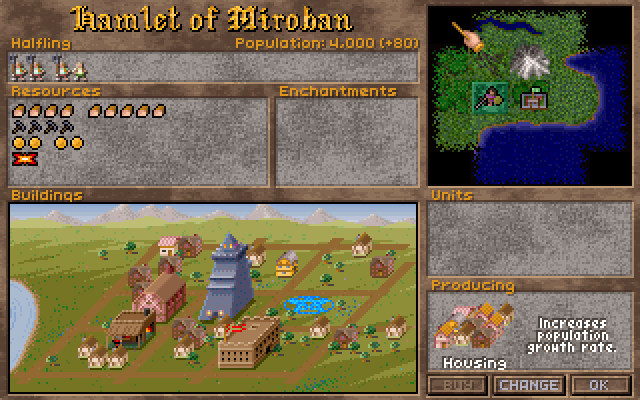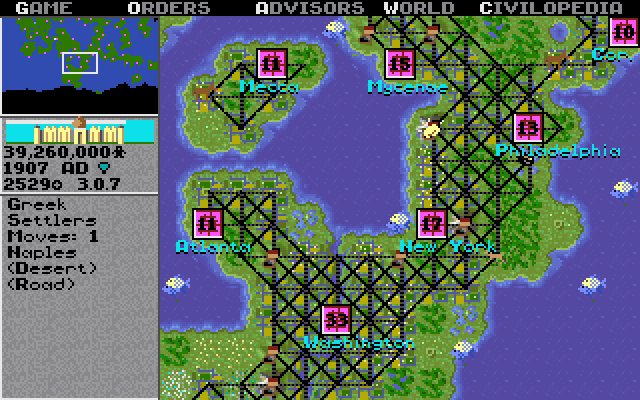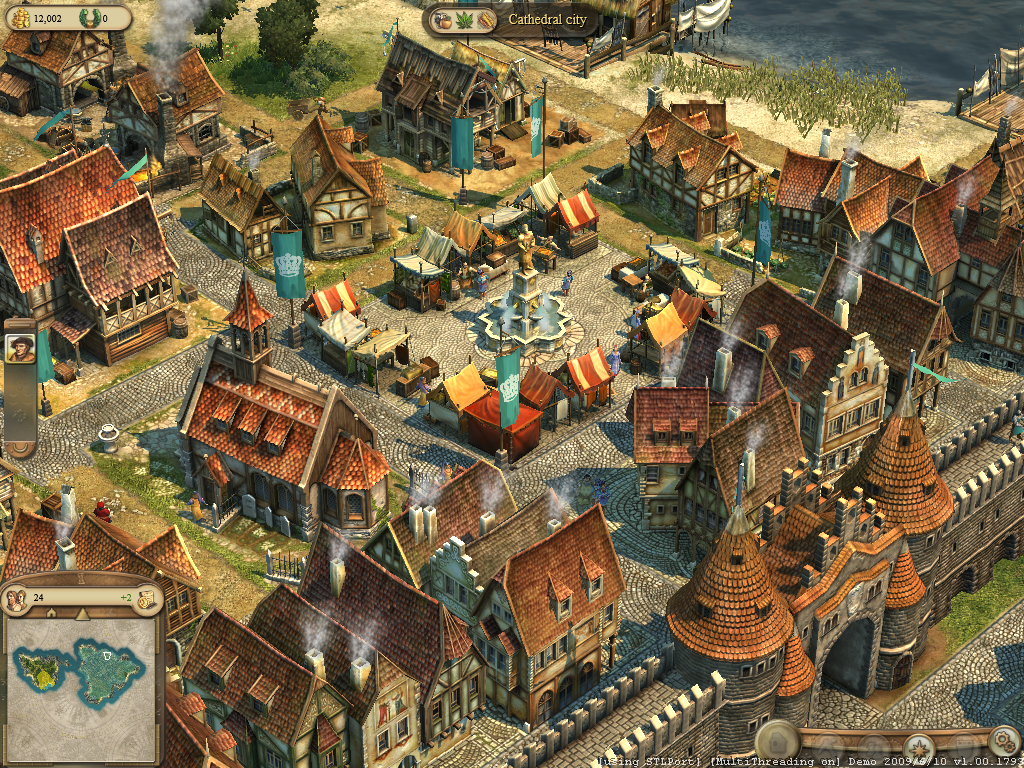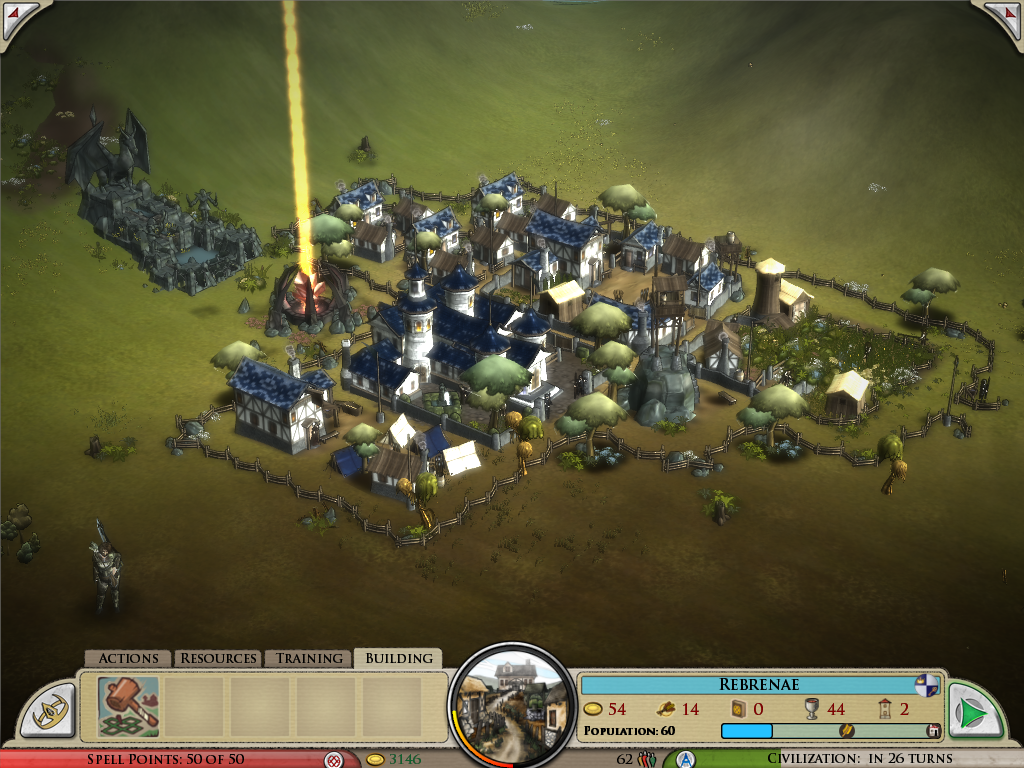Hi! I'm Viridian, also known as Anthony Salter, and I just finished a major revamp of the citybuilding system. I'd like to talk today about our design goals for citybuilding and how the system currently works.
First, let's look at how our major inspirations, Civilization and Master of Magic, handled cities. In both games, cities were fairly abstract. They consisted of a single icon on the map and a screen full of sprites and numbers.

And you would end up with dozens of the things as the game progressed; to the point where you'd probably end up ignoring some because they were too small or unproductive to help you win the game. (Didn't prevent them from falling into civil disorder and bringing your whole empire to a grinding halt...grr...)

As strategy games developed, a genre of incredibly detailed citybuilding games emerged, including the Caesar series, the Settlers series, and the Anno series.

In these games, everything is simulated practically down to the atomic level. These are the kinds of games where you need to mine ore to make tools to cut down trees to gather lumber to take to the sawmill to make planks to build new buildings.
Now, there's no doubt this can be fun. I've enjoyed both the Settlers and the Anno series of games myself. The only problem is that citybuilding, while important, isn't the only thing you do in Elemental, and thus we can't allow it to dominate the game the way it does in Anno-style games. (I can hear certain people weeping on the forums already but it's true.) So what we've tried to do is create a happy medium.
I've spent all this time telling you how citybuilding won't work; it might be a good idea to tell you how it will.
What exactly did we want when we set out to create our citybuilding system?
Well, first, we didn't want city spam. Thus, we created a system where building a smaller number of larger, older cities is rewarded.
As you probably know, Sovereigns can create cities, thus creating a town hub. There are five levels a hub can go through - they start as outposts, then upgrade to hamlets, villages, towns, and cities. At each upgrade point you'll get eight new tiles to build improvements on - and your city will be able to support more efficient improvements that it couldn't before.
Another feature of cities is that they are (mostly) auto-upgrading. If you expand your city to a village and you have the Housing technology researched, then all your huts will upgrade to houses - instantly, and for free. Your city needs to be at the proper level and you must have the technology researched in order for this to happen. Again, I can hear the cries of some forum-goers who think that this will negatively impact the game, but we're facing facts here. Ninety percent of the time when we get a new housing tech we simply demolish our old houses and build new ones right where the old ones were. Because of the hard forty-tile limit you can't just throw more out there - non-optimal improvements will literally be a detriment to your city.
Indeed, crafting a good city is going to be a continual series of trade-offs rather than a forever-growing list of improvements. And as the city grows and the game progresses, you will find yourself continually repurposing your cities rather than building new ones.

Our goal is to strike a balance, so that we aren't overwhelming the player with city management, but we still provide a robust enough experience that you don't just think of your city as numbers and sprites. When someone attacks your city and your little people start running around screaming, we want you thinking, "Hey! Stop picking on them! How 'bout a little FIRE, Scarecrow?!"
EDIT: I originally stated that Sovereigns needed to expend essence to create cities. This is incorrect; they expend essence to bring the land back to life so the city can be built. I have fixed the error in the article.





